|
Discover the pros and cons of long-term and short-term leases for renting a home as a digital nomad. Make an informed decision today! Embarking on the thrilling journey of renting a home as a digital nomad opens up a world of possibilities. As the global trend of digital nomadism continues to soar, finding suitable accommodation becomes paramount. This article delves into the intriguing debate between long-term and short-term leases, offering insights and guidance for digital nomads seeking their ideal abode. Whether you crave stability and predictability or desire flexibility and variety, we explore the pros and cons of each option. So, join us as we navigate this exciting decision-making process, empowering you to create your perfect home base as a digital nomad. Understanding Digital Nomad Lifestyle Embracing the digital nomad lifestyle grants individuals the freedom to work remotely while exploring the world. With flexibility as its cornerstone, this way of life offers endless personal and professional growth opportunities. The benefits are abundant: escape the monotony of a traditional office, immerse yourself in diverse cultures, and cultivate a balanced work-life dynamic. However, challenges arise when finding suitable accommodations that cater to this unique lifestyle. By understanding the intricacies of the digital nomad lifestyle, you'll be empowered to navigate the challenges and make informed decisions for finding your ideal accommodations. Long-Term Leases: Pros and Cons Long-term leases offer certain advantages and disadvantages for renting a home as a digital nomad. On the positive side, long-term leases provide stability and predictability, allowing you to establish a home base while exploring new destinations. They often come with lower rental rates, especially for extended stays, helping to manage your budget effectively. Having a fixed address can be beneficial for receiving mail, setting up utilities, and even registering for local services. However, the lack of flexibility can be a drawback, as digital nomads thrive on the ability to move while working remotely. And if unexpected opportunities arise in different locations, balancing work and relocation can be challenging. Long-term leases also require a significant financial commitment, including upfront deposits and potential termination fees. Moreover, feeling tied down to one place may dampen the adventurous spirit that drew you to the digital nomad lifestyle in the first place. Consider your priorities and future plans before committing to a long-term lease, ensuring they align with your aspirations and fulfill your dynamic digital nomad needs. Short-Term Leases: Pros and Cons Short-term leases offer their own set of advantages and disadvantages for renting a home as a digital nomad. Their flexibility is a major perk, allowing you to move frequently and explore diverse locations. This variety can enrich your experiences and offer a fresh perspective. Moreover, short-term leases require a minimal financial commitment, making them suitable for those on a tighter budget or uncertain plans. However, it's important to consider the potential drawbacks. Short-term leases often come with higher rental costs as landlords factor in the flexibility they offer. Availability can also be limited, particularly in popular destinations or peak seasons. Searching for new accommodations can be time-consuming and disrupt your work routine. Additionally, the transient nature of short-term leases means you may have to adjust to different living environments more frequently. Despite these challenges, short-term leases are ideal for digital nomads prioritizing freedom and craving new adventures. Carefully weigh the pros and cons and align them with your personal preferences and goals to make an informed decision that suits your dynamic digital nomad lifestyle. Factors to Consider When Choosing a Lease When choosing a lease for renting a home as a digital nomad, several key factors come into play. Firstly, consider your budget and financial considerations, ensuring the rent is sustainable in your desired location. Next, evaluate your desired length of stay, as this will determine whether a long-term or short-term lease is more suitable. Flexibility requirements are crucial, as you may need the freedom to move frequently. Additionally, be aware of local laws and regulations governing leases in your chosen destination. Consider the amenities and services you require, such as reliable internet access. Lastly, if you require assistance with the physical move, experts from Affordable Reliable Moving Company California advise seeking advice from professional movers. They have the expertise and experience to handle the logistics of your move efficiently. Prioritize finding reliable movers who specialize in international or long-distance relocations. Research their reputation, read reviews, and compare quotes to ensure you get the best service within your budget. Communicate your specific needs to the movers, such as fragile equipment or time-sensitive deadlines. By entrusting the moving process to professionals, you can focus on other aspects of your digital nomad lifestyle, knowing that your belongings will be handled carefully and arrive safely at your new home. Making the Decision: Long-Term vs. Short-Term
When deciding between long-term and short-term leases for renting a home as a digital nomad, careful consideration is key. Assess your priorities and lifestyle, weighing the pros and cons of each option. Consider your current and future work arrangements and the level of flexibility you require. Consider factors such as budget, desired length of stay, local laws, and amenities needed. Seek advice from fellow digital nomads or online communities to gain valuable insights. Remember, there is no one-size-fits-all answer, as it depends on your unique circumstances. Trust your instincts and make the best decision with your goals and aspirations as a digital nomad. Conclusion The decision of renting a home as a digital nomad requires careful consideration of individual preferences and circumstances. Whether you opt for a long-term lease, embrace stability and establish a home base, or choose the freedom of short-term leases, the choice ultimately depends on your desired flexibility and financial commitment. Remember to assess your budget, length of stay, and your chosen location's local laws and regulations. Seek advice from fellow digital nomads, tap into online communities, and trust your instincts. Happy home hunting! Photos via: Pexels Pexels Pexels Pexels There are several important things to inspect before signing a rental agreement. Read about the most important things to look out for. Moving into a new home can be a fascinating event. But moving away requires a lot of planning and preparation beforehand. One of the things everyone should do before they move into their new home is to inspect it. Knowing the things to inspect before signing a rental agreement can help you decide whether to rent that home. When you check the house thoroughly, you’ll know its actual state before packing your things. You’ll know whether the home's safe and secure and whether it is worth considering moving into. Electricity is one of the things to inspect before signing a rental agreement Faulty electricity in a home can lead to severe problems. A house that doesn’t have good electricity isn’t just annoying. It can also be dangerous. That’s why you should always inspect a home's electricity before signing a rental agreement. Check every light switch and lighting fixture when you examine the house. That will help you see whether there are any problems with the electricity. Afterward, try out the appliances. That will help you see whether there are any problems with the electricity and whether the appliances work. You can ask a professional to inspect the electricity before you sign a rental agreement to ensure there aren’t any problems. Inspect the plumbing as well Another essential thing to inspect before you sign a lease agreement is the plumbing. Not only can plumbing problems be challenging to deal with, but they can cause damage to the property and your things. Mold in the bathroom clearly indicates something is wrong with the plumbing. In addition, mold is one of the most dangerous things for your health that you can find in your rental property. Water damage on the walls or the floor is another way of knowing whether everything is in order with the plumbing. If there are any issues with the plumbing, take care of them before you move to protect your things from water damage. To protect your items during the moving process, experts from Rockstar Pro Movers advise you to use high-quality packing materials to protect them. That will ensure their safety during transport even further. Heating, AC, and ventilation No matter how great the property is, it can be challenging to live in it if the heating and AC aren’t working correctly. Inspect these things to find a home you’ll feel comfortable in at any time of the year. You won’t have to worry when the seasons and temperatures change. Besides this, make sure to check whether they are clean. A dirty AC and ventilation system can be dangerous for your health. If you notice they are dust-filled, ask the owner to take care of them before you move in. Inspect the paint Before you start planning your move, check out the home's interior. Take a look at whether there are any stains or scratches on the walls. Even if this is something you can live with, knowing that the damage existed before you moved in is essential. You won’t risk losing the deposit after you move out due to the paint damage. Of course, if you notice any water damage to the walls, notify the owner right away. Once the damage is taken care of, you can move in. If you don’t like the color of the walls, ask beforehand whether you can change it. Asking important questions like these will help prevent problems later on. Safety and security One of the most important things about the home you choose is related to its safety. Before you decide whether to rent it, check to see whether it is a safe and secure place to live in. Security cameras and security codes are some of the things to look for. Inside the home, look for a fire extinguisher and fire alarms. If there are fire alarms, inspect whether they are functioning. A carbon monoxide detector is another plus to look for in a home. You can also check out the crime rates for the neighborhood to know how safe the area is. That will help you decide whether to move here or not. Take a look at the furniture Don't overlook the furniture if you want to rent a furnished home. That is one of the most important things to inspect before signing a rental agreement. Inspect whether it is damaged or whether it needs cleaning. That is especially important to do with wooden furniture that may have termites. Bedbugs are another severe problem you need to be on the lookout for. In addition, see whether you have all the furniture you need. The amount of available furniture and storage space will help you determine which property to rent. Moving in after signing a rental agreement
Now that you’re done with the inspection planning, it's time to move. Moving can be a little more complicated if you are moving from one state to another. To save money on your interstate move, downsize the number of things you own by decluttering. After you finish decluttering, it’s time to find the right movers and calculate your relocation costs. You can find expert help in the state to help you relocate safely, even from CA to Nevada. To save even more money on your move, pack efficiently. Put similar items together and use every box to its fullest potential. In addition, make sure to secure the boxes and label them. Not only does this make moving more manageable, but it will also make unpacking a breeze. To conclude These things to inspect before signing a rental agreement are crucial. If you don’t inspect the home beforehand, you risk several things. First and foremost, you risk moving into an unfinished home or needing repairs. Things such as plumbing and electricity can cause several different problems if they aren’t in order. And if you are looking to move into a furnished apartment, the state and quality of the furniture will affect how you feel in the space. An inspection is one of the best things you can do to ensure your safety and comfort. It may take a little organization and time, but it will pay off as you can completely relax in your new home. Photos via: Pexels Pexels Pexels Pexels Are you thinking about moving to Reno, NV? Whether you’re a current or prospective entrepreneur, Reno is a fantastic location to run a business. The city and state boasts all kinds of wonderful opportunities for entrepreneurs. You’ll enjoy robust community support for small businesses, an educated workforce, and no shortage of local resources designed to help local businesses thrive. In a rocky economy, the value of launching a business in a supportive environment cannot be overstated.
Availability of Rentals If you’re not in a position to buy a home, renting is a great alternative, especially in Reno. The city has a variety of rental options at price points suited to various budgets. Look for homes in a neighborhood that fit the needs and wants of your family. Once you’ve chosen a few suitable areas, view online listings to find properties in your price range. Most online rental sites will allow you to filter your search results based on your desired number of bedrooms and bathrooms, so remember to take advantage of these tools! Consider working with us here at Clark Real Estate to find the best rentals in Reno. Explore this and other reasons you should consider setting up shop in Reno: Here are the top things to know before moving to Reno, NV, for all those planning to make it their new home. Have you ever heard of the biggest little city in the world? We are talking about Reno, Nevada, a place in the northwest part of the United States of America. Whether for its incredible landscape, dynamic lifestyle, proximity to San Francisco, or the everlasting fun this city promises, Reno has been one of the most popular places over the years for both visitors and newcomers. So, if you have heard these amazing facts and are planning to come there for good, here are several things to know before moving to Reno, NV. A few words about living costs One of the most important things everyone would like to know when buying a home in the Reno city area is how much money they would need for a living. Well, truth to speak, Reno, Nevada, is not the most affordable place in the world. It is among the most expensive ones. An average family needs approximately $80,000 a month to have a decent life. Although living in Reno is cheaper than living in San Francisco or New York, it is still in the high 21st position among the most expensive cities in the country. Its living costs are about 8% higher than the national average. The real estate market Low property taxes, and generally high incomes, make Reno one of the top three places in the USA where people wish to buy a home. There are neighborhoods for everyone. Starting from the ones hidden in the peacefulness of a forest area to those situated in the center of busy city life. Furthermore, since the number of buyers in the real estate market has grown, the available offers have decreased in the past several years. What's more, homes that are still in the game have pretty high prices. Still, some researchers have shown that shortly, the price growth will slow down for a little bit. That is why this may be the right time to invest in a house in Reno, one of the most wanted real estate in the USA. And when the moment of relocation comes, as the experts from familyaffairmoving.com would say, all you need is a group of experienced movers, and everything will be done in no time. Finding jobs The job market in the city of Reno is in constant growth. Their industries are expanding, and the offer is diverse. Some of the most developed industries in recent years are technology and healthcare. The number of opportunities is growing, while taxes are still pretty low. So, if you are moving to Reno to find a new job, you are one among the many. The weather- one of the things to Know Before Moving to Reno, NV In Reno, you'll have a chance to meet all four seasons. All over the year, they have a mixture of great hot summers, pleasant springs and autumns, and beautiful snowy winters. You'll see rain, snow, sun, strong winds, and even thunderstorms. Although the temperatures in the hottest and the coldest months can vary, they never go below 23°F in winter or 89.6°F in summer. So, if you are among those who are moving to Reno from California for work, get ready to pack some warm clothes, too. You are going to experience some real winter weather with all its charms. And when it comes to preparing your household for the move, experts can pack in no time since packing services in California are more than excellent. The town's atmosphere
When we say small-town atmosphere, we mean precisely that. One of the things to know before moving to Reno, NV, is that their people cherish a strong sense of community. Naturally, everyone knows their neighbors. Even if they are newcomers, it's only a question of time before someone will knock on their door and help them blend into the city's community and life. That is one of the reasons why Reno is a perfect moving destination for families. In this city, you will find numerous great family-friendly parks that can offer entertaining outdoor activities for kids and adults. And when it comes to traffic, traffic jams will be your past since people in Reno rarely sit and wait in their cars for more than a few minutes. Education When we talk about schools you can find in Reno, there are many options. Reno's education system is strong. Some of the best public schools in Nevada are in Reno. On the other hand, when it comes to higher education, Reno residents can boast of being a college city. Apart from the Truckee Meadows Community College in this city, there is also a four-year public University of Nevada Reno. The crime rate in Reno, NV Since safety is one of the top priorities among the residents of any city, especially if they have children, it is good to mention that Reno is not considered the safest place in the world. However, although the crime rate is above the national average, not all neighborhoods have the same crime rate. The Reno residents prefer living in the southwest part of the city since they claim it to be the safest one. Still, you should remember that there is no perfectly safe place in the world. So, all you need to do is to get informed about the crime rate in the area of the city you would like to live in. Entertainment Well, entertainment is the word that best describes life in Reno, NV. This is the city where the fun never stops.
Are you ready to create a perfect home office in your new residence? Here’s how you can do it in a few simple steps. Whether you're just starting your own business or have been working from home for years, having a home office in your rental can make working from home more enjoyable. Whether you're renting an apartment or a house, these tips will help you get set up with the best possible working space.
Choose a good location Once you've decided on the type of space that will work best for your home office, it's time to find the perfect spot. There are many factors to consider when choosing a location for your home office.
It's all about the lighting When setting up your home office, it's all about the lighting. Once you find a new home and start furnishing it, you want to create an environment that is inviting and comfortable for you to work in. To do this, you need to keep in mind the following:
Get creative with storage solutions The first thing you should do is make sure your storage solutions are up to snuff. This can be challenging if you don't work from home full-time and just need the occasional space to work on some paperwork. But it doesn't have to be impossible. For example, if you have bookshelves at home already, consider using them as storage for your office supplies instead of in the living room where they usually go. It will save space and keep things organized. Another thing you should consider is using a small table in your living room. It would make an excellent surface for storing paperwork or other materials that are easy to reach. If neither of these options works for you, try hanging a shoe rack from an unused wall; this is especially helpful if your rental unit has limited closet space. Finally, if all else fails, plenty of wall-mounted shelves are available online that can make bare walls look like they were meant specifically as storage spaces! Invest in quality furniture When setting up your new office, it's crucial to invest in good quality furniture that will last. You want to be able to enjoy your space for a long time! Before buying furniture for your home office, consider the following:
Decorate with plants and other natural elements For all of these reasons, it's important to decorate with plants and other natural elements. Plants can help improve air quality, reduce stress, purify the air, and save money on heating and cooling bills. On top of that, they can also help you cut down on your energy bill by providing shade from the sun and a break from the wind. This is particularly useful if your office doesn't have much ventilation. The benefits of incorporating plants into your home office design don't stop there! They give off oxygen which helps keep us alert. And if you're a plant person like me, then it's nice having something green around too. Choose a neutral color scheme for your walls When renovating your new home, especially the home office, consider choosing a neutral color scheme for your walls. You want to choose a color that will go with anything and one you won't be tired of looking at years later. For example, some prefer bright colors like red or yellow in their home offices. Mainly because they feel more energized when they look at them. However, if these colors aren't your style or don't reflect your personality well enough, the room may not feel like yours. It's better to choose something neutral, like white or light gray, so it can complement any decorating scheme without being overpowering or distracting from other elements in the room. However, if you have time to plan when you move into your apartment space (or even tap into your creative side), consider painting one wall as an accent color. This way, it won't detract from anything else in the room but adds another dimension for visual interest! Final thoughts We hope that these tips have helped you get started on creating your dream home office. Remember, there's no right or wrong way to do it! As long as you take the time to think through what kind of space best suits your needs and how you want it decorated, then any mistakes along the way will be easy enough to fix. Most importantly, you enjoy working in this space so much that it feels like home, even when you're not at home. Photo via Unsplash Concerned about water damage on your rental property? Read our list of 7 tips for preventing water damage in your rental home now! Water damage is a serious problem across many US homes, causing billions of dollars' worth of damage every year. The reason that water damage is so prevalent is that every home has running water. To make things worse, water leaks are very hard to detect before more extensive damage is already done. Untreated water leaks are especially harmful in rental properties, as they can seriously affect the investment and livelihood of the landlord and property manager. So, to help you avoid issues with your rental property, we have put together a list of 7 tips for preventing water damage in your rental home. 1. Inspect plumbing yearly or biannually The best way to deal with plumbing issues is to catch them before they become more severe. As such, inspections are essential to preventing water damage in your rental home. After all, most leaks and old pipes have warning signs before they burst and start flooding. So, the only way to miss them is to neglect regular inspections. Or, if you are doing regular inspections, they aren't thorough enough to spot the problem. Make sure to hire experts, or if you're doing the check yourself, make sure you know what you're looking for. And while we're on the topic, you should know the difference between normal wear and tear vs property damage. We recommend that you perform these checks yearly, but biannually can also work. 2. Inspect the roof, chimney and attic It can be easy to focus solely on the water damage inside a home. However, water damage can just as easily come from outside, especially in states with a lot of rain. Regular checks of your roof, attic and chimney can reveal wear and tear, which can quickly evolve into more severe issues. You should do this check biannually; however, we recommend inspecting the outside of your home after every heavy rainfall or snow. Additionally, if you're someone who's moving into a rental property, experts from heartmoving.us recommend doing a check as soon as you move in to make sure. After all, you don't want the damage to be blamed on you, so prevention is in your best interest too. Landlords are advised to perform a move-in inspection and note all pre-existing damage on a checklist. 3. Regularly clean and maintain gutters Another common source of water damage is the home's gutters. After all, the point of gutters is to direct water away from the house, which is a good thing. However, when they're not cleaned or get damaged, gutters can have the exact opposite effect, and they can retain water. If water gets stuck in your gutters, it can cause severe damage to your roof in the long run. As such, after every heavy rainfall, or every few months, you should ensure the gutters are cleaned and well maintained. Remember, the most common issues of this problem are ice damming and gathered debris. As a tenant, you can easily do a check yourself, but be careful not to damage the gutters yourself while checking. As for property owners, remember that keeping the property well maintained is an excellent way to make your property more attractive to renters. 4. Insulate the pipes Even if your tenants take excellent care of the pipes in your property, or if you give them guidelines on how to do it, problems can still happen. As such, installing pipe insulation is the best way of preventing water damage in your rental property. Sure, this isn't the cheapest thing to do, but the price of having the insulation installed is tiny compared to how much you'd have to pay to replace burst pipes. As for tenants, always be careful how you use water fixtures around the home. The tiniest mistake can lead to serious consequences. And if you're planning to move out of a rental property, especially when it comes to apartments, you want to make sure you leave everything spotless when moving out. Landlords should talk to their tenants and remind them that they will perform a move-out inspection, so everything needs to be in order. 5. Maintain basement drainage If your property has a basement, it's crucial to ensure no water gets stuck in it. It's easy for the basement to flood and for that to go completely unnoticed. However, fixing a basement flood isn't as easy as solving other problems around the house. So, making sure the drainage system is working properly is quite important. Regular checks on the drainage system, preferably every few months, should help you prevent water damage in the basement. Also, if the basement is used to store belongings, this becomes ever more important. The last thing you want is to go into your basement and find everything you kept there to be drenched. However, it would help if you also considered how a property manager can benefit from a storage solution. 6. Use a catch basin
Some properties can have issues with water gathering around the base. A good solution, in this case, is to install a catch basin, which will ensure no water gathers around the home's base. A catch basin will effectively redirect the water from the basement and foundation, thus preventing structural damage. 7. Install a sump pump An excellent way to make sure there's no water building up in your basement is to use a sump pump. Essentially, any water which might otherwise gather in the basement will drain into the sump pit, which you can later pump out a distance away from the house. However, keep in mind that sump pumps must also be maintained regularly to work properly. Closing thoughts Water damage is one of the common issues in properties all across the US. However, avoiding this kind of damage is very important for rental properties, as the damage can seriously lower the property's value and the landlord's investment. So, it's imperative to do your best to prevent it both as a tenant and a manager. Fortunately, most ways to do this are straightforward, only needing regular checks to ensure problems don't become serious or stop them outright. We hope this list of 7 tips for preventing water damage in your rental home helps you avoid water damage, and we wish you a great rest of your day. Photo Credits: Pexels Pexels Pexels Pexels 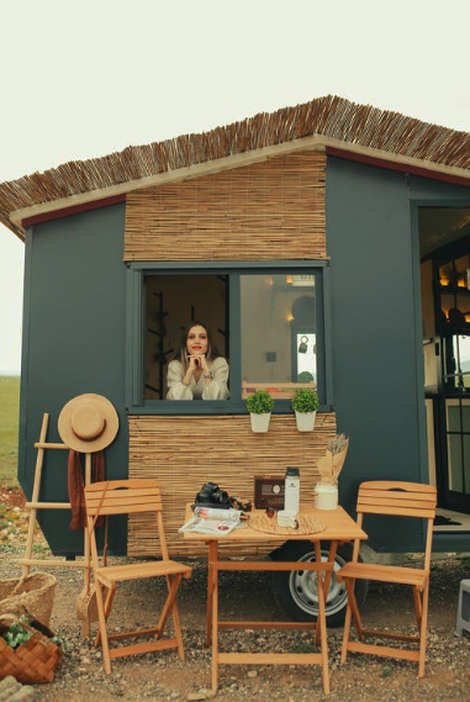 As a homeowner, it can be challenging to determine whether downsizing is right for you. However, by understanding what downsizing means and looking at the benefits, you can often make the best decision for yourself with relative ease. If you’re trying to determine whether now is the right time to downsize, here’s what you need to know, courtesy of Clark Real Estate. What Is Downsizing? According to the Cambridge Dictionary, downsizing means moving “to a smaller home, usually because your home has become too large for you or as a way of saving money.” It’s a common activity among homeowners, particularly during significant life transitions. For example, some homeowners downsize after their children head to college or otherwise move out, often because they no longer need as much space. Others decide to downsize as they prepare to retire, allowing them to simplify their lives, cut costs, modernize, and reduce home maintenance-related burdens. Exactly how your new home differs from your last one can vary. In most cases, you’ll have less square footage when you downsize and might have fewer total rooms. The Benefits of Downsizing Decluttering Reduces Stress Unless you previously embraced a minimalist lifestyle, there’s a good chance you’ve currently got some clutter. When you downsize, paring back on your belongings is typically part of the equation. Not only does it make it a great excuse to declutter, but eliminating that extra stuff can reduce stress. You won’t feel overrun by your belongings, giving you peace of mind. Plus, there are plenty of simple approaches that make downsizing easier. You could try: Less Cleaning to Manage Another one of the major downsizing benefits is less cleaning. When your home is smaller (and there’s less clutter), your cleaning needs go down. You’ll have fewer surfaces to contend with and less overall square footage, letting you tackle all of your needs in less time. Since your home won’t have as much maintenance, you’ll have more time to spend on activities you enjoy. If you’ve regularly felt pressed for time, that alone can make downsizing worthwhile. Reinventing Yourself When you downsize, there’s nothing that says you have to stay in the same neighborhood. Instead, you could set your sights on a new location, giving you a chance to reinvent yourself after you move. In many ways, a move can be a fresh start. By coupling it with downsizing, you’ll get both benefits at the same time. Smaller Energy Bills When it comes to financial benefits, downsizing your home typically shrinks your energy bills. You’ll have less square footage to heat or cool, and that alone can make a big difference. Additionally, you might have fewer light fixtures or may be able to shift to smaller appliances that run more efficiently. As a result, your energy bill could go down quite a bit without you having to change your lifestyle. Making Money from Your Home Sale If your current home is larger than your new one will be, you have a money-making opportunity. Smaller houses typically cost less than their larger counterparts. As a result, there’s a decent chance you’ll earn a bit of profit on the sale that won’t have to go to your next property. The extra cash could help you accomplish a variety of goals. You could eliminate debt, making your budget easier to manage. Handling a large purchase, tackling some renovations, or taking a vacation might also be viable options. Try a home sale proceeds calculator if you aren’t sure how much money you could make by selling. That way, you can estimate the property’s value and your potential profit, giving you a decent idea of what to expect. Protect Your New Home When you downsize your home to save money, the last thing you want to happen is having to spend a lot of money out of pocket to fix several things breaking at once. You can protect yourself from this circumstance by finding the company with the best home warranty for your home. A solid home warranty will protect you in the event of an HVAC or plumbing issue, ensuring that it gets repaired quickly. All you’ll have to pay is the trade service fee. Read testimonials online to find the best provider for you. There are a host of financial benefits to downsizing your home. If it’s time for you to downsize, get started decluttering and organizing, sell your home at a profit, and protect your new home with a warranty. Image via Pexels What goes up must come down. That adage is true when it comes to throwing a ball or hot air balloons, but what about rising prices? History tells a different story. You don't need to be an economist to know that prices for most products are more on a continuum trending upward with only slight and temporary dips. Inflation is a result of supply and demand. When there is greater demand than supply prices will increase. When there is a oversupply of products, the cost typically goes down albeit not necessarily lower than a previous average. Anyone that has filled their vehicle with gas over any period of time knows that gas prices fluctuate with the seasonal ups and downs directly related to usage by consumers and how much is available in the world. Inflation not only affects the price of gas and groceries, but also housing prices. The price of building a new home is related to the supply of construction materials. When the cost of building a new home is prohibitive, there is more demand for existing houses. Which, in turn drives up the sales price of an existing home. Other factors can contribute to home prices such as interest rates or the availability or affordability of low cost financing. Again, supply and demand is what pushes inflation to the record levels we've recently seen. Here is what many in government see as a benefit to inflation: The cost of paying back debt is actually lower when the debt was incurred prior to inflationary increases. If inflation devalues our money by say 10% it means that the debt represents a lower percentage of the income needed to repay it. If inflation pushes prices to 50 or even 100 percent, the pre-inflation debt seems insignificant. That is possibly one reason that many in congress don't seem to be concerned about inflation. One key to surviving inflation is to hold on to assets that rise in value with inflation. Cash is not a good hedge against inflation because it continually takes more of it to buy goods and services. Real Estate, precious metals, and durable goods that remain in demand in any economy historically provide protection better than most liquid assets. While high inflation rates may subside when demand and supply are corrected, prices typically level off but do not decline. That makes investing in real estate, for example, fairly safe. Landlords rarely lower the rents when inflation cools off. A shift to new construction could occur if materials become more readily available, but the existing homes hold their own. Understanding inflation can help you make better choices about what to invest in and how you can benefit from what can be negative affects.
In the world of real estate, having a rental property is an excellent investment. You will benefit not only from long-term investment returns but also from interim income. This is why many investors are looking for rental opportunities. However, being a landlord is not an easy job. It can be pretty demanding at times because it requires many skills and knowledge about real estate. So, if you're having a hard time being a landlord, you should definitely consider hiring professional help. Read this article to find out about 5 signs that show it's time to hire a property manager! You don't have time to manage One of the main reasons landlords choose to hire a property manager is they simply don't have enough time to manage their investment. More often than not, being a landlord is not a full-time job, but it sure is time-consuming. It comes with regular responsibilities and requires total commitment. This being said, if you have a full-time job, managing your rental property as a side job can become an issue. Another problem can appear if you have multiple rental properties. The more properties you're leasing, the bigger management needs you'll have. It's hard to keep up with one; imagine with two or more! Therefore, it's highly beneficial to hire a professional in situations like this. You have a problem with tenants Being a landlord means choosing reliable and responsible tenants who will be respectful of your property. Unfortunately, this is harder than you think. As a landlord, you might face a lot of unpleasant situations. Here are the most common examples:
You don't live nearby Not living in the area of your rental property can turn into a problem when it comes to being a landlord. The distance can intervene with your management obligations. For example, even if the property is in excellent condition, there will be times when you need to drop by and pick something up or inspect the building. You will be unable to respond to these emergencies if you don't live nearby. As a result, anyone who lives far away from their commercial property should think about contacting a professional manager to keep an eye on it. Hiring a property manager eliminates the need for you to commute back and forth every time your tenants need something. You'll be able to rely on the manager and their expertise when it comes to managing your property without your supervision. You're struggling with leasing As an investor, you want to make the highest possible profit from your investments. If you're renting a commercial property, this means you'll have to have tenants at all times. To make this happen, you have to meet the tenants' needs and keep up with the current real estate trends. Learn about what's hot on the market at the moment, how you can interest potential tenants for your apartment, what you can do to improve it, etc. Every good property manager has this kind of knowledge, so it would be a good idea to hire one for some expert advice on the matter. Tenants may relocate for a variety of reasons, but the property managers can assist in lowering turnover. They know how to make tenants happy and keep them from looking for a new place to rent. Additionally, they will definitely have good marketing strategies and a network of interested tenants to occupy your property. All things considered, hiring a property manager is a win-win situation. You don't know anything about rental laws Every successful landlord should know the local landlord-tenant laws. Every municipality has its own regulations when it comes to the relationship between the landlord and their tenants. In a nutshell, these regulations are the guidelines on what your obligations and responsibilities are as a landlord, and they apply to tenants as well. So, before renting a property, you should get to know these regulations very well. If you don't have time for this, or you're having problems with understanding and applying all the rules, you should definitely consider hiring a professional property manager. They will know these rules by heart, and they'll take care of everything you are having trouble with. Additionally, property managers can help you with getting all the legal documentation you need for your rental property. As a landlord, you'll have to get a few licenses and follow proper regulations when it comes to your property. All this can be a bit overwhelming, so it's a good idea to have a professional take care of it. They know every code and regulation, and they can help you obtain every license you need. It's also convenient because the property manager will make sure everything's done according to law, so you won't have problems in the future. Are you ready to hire a property manager? Based on the above mentioned information, we can all agree that being a landlord is a demanding and time-consuming job. It requires a diverse skill set and proper knowledge of the real estate market and its constantly changing trends. Therefore, if you're struggling with any of the things we mentioned in this article, it's time to contact a property manager to help you take the management obligations and stress off your plate. This would allow you to continue expanding your business without dealing with minor problems that can quickly escalate into major headaches. So, don't hesitate and make that call!  A lot of challenges come with owning and renting properties. From remembering to bill your renters to staying on top of maintenance needs for every property, there is no shortage of things to do. If you own many properties that you rent out or even just one property, there are a lot of headaches and challenges you can face along the way. One thing you must do as a landlord is make sure the property stays in shape. Amanda Hinson, who rents out a property of her own, says that she must “call on tree trimmers, painters, construction workers, the plumber, and electrician for help with maintenance. If there's something I can manage myself, I will do the work such as cleaning gutters.” However, when you don’t live near your rented property, it is not easy to find the best options to keep up the maintenance, let alone to do the work yourself. You also can’t check if your renters are following the rules, such as not having more people than agreed upon, or taking on another pet. So how can you live with peace of mind while managing your property? By using a property management service! Reno Property Management Service with Clark Real Estate is a great solution for owners in the Reno/Sparks area. A family business run by Charles and Rick Clark, they will help you rent out your Reno or Sparks property without the usual stress and challenges. When asked why someone should use a property management service, Amanda Hinson said that it was “convenient, low stress, it provides me peace of mind and freedom to manage my personal house more. I can give time to what's really important.” Give time to what is important to you, such as your own home and family, while the professionals help you advertise, collect payments, do maintenance, find good renters, deal with emergencies, and more! And on the flip side, renters can find property more easily with the Clark Real Estate website. They can find what they are looking for among Clark Real Estate’s options, while you still get money as the property owner. As Real Estate’s brokers find the best tenants for your properties and find the best properties for tenants using their unique qualification process, start relaxing and doing what feels most important again. |
Clark Real Estate
305 W. Moana Ste C Reno, NV 89509 (775) 828-3355 Reno Property Management
All
|





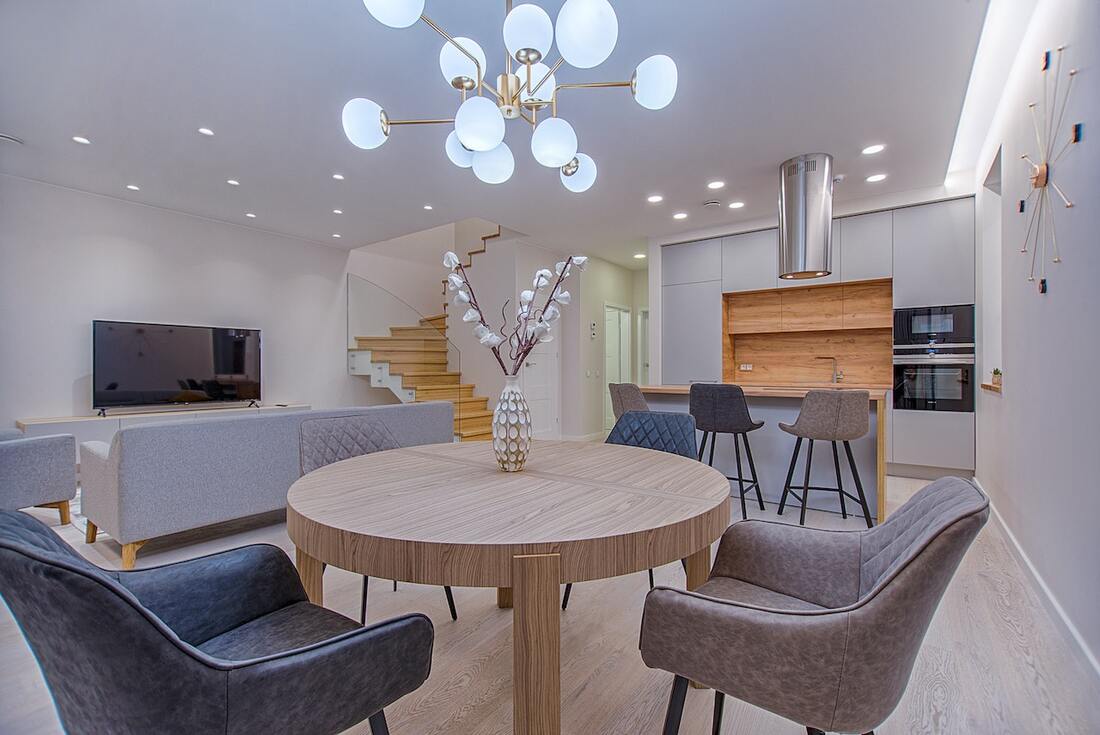
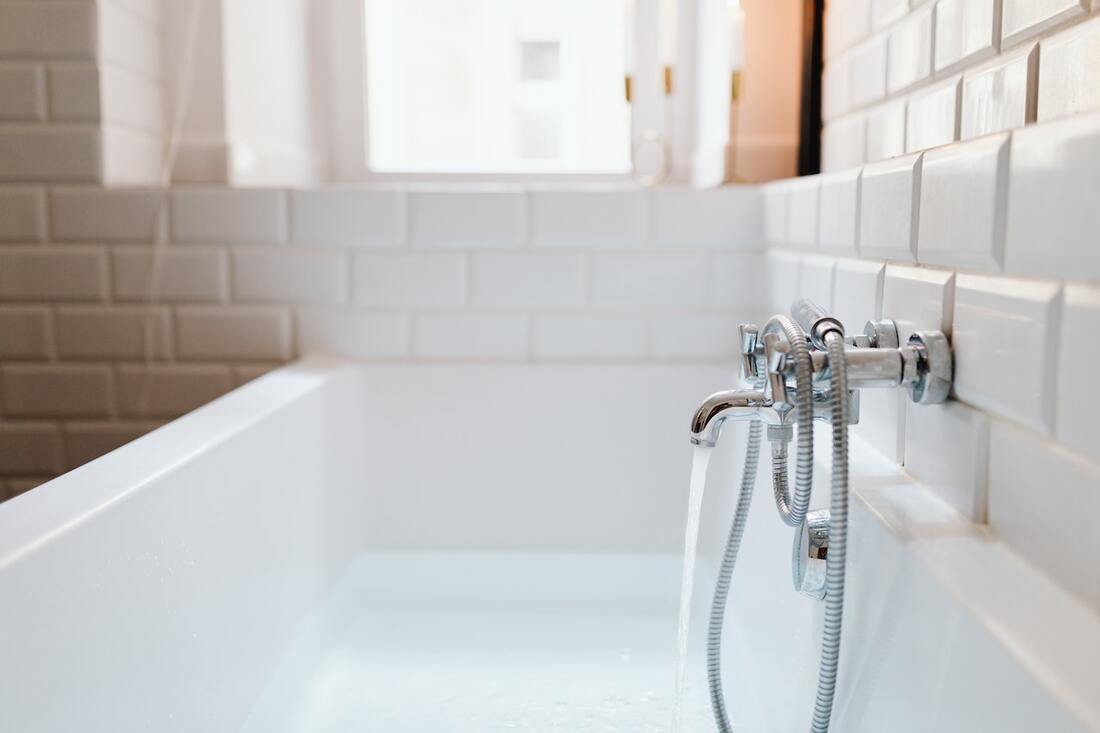
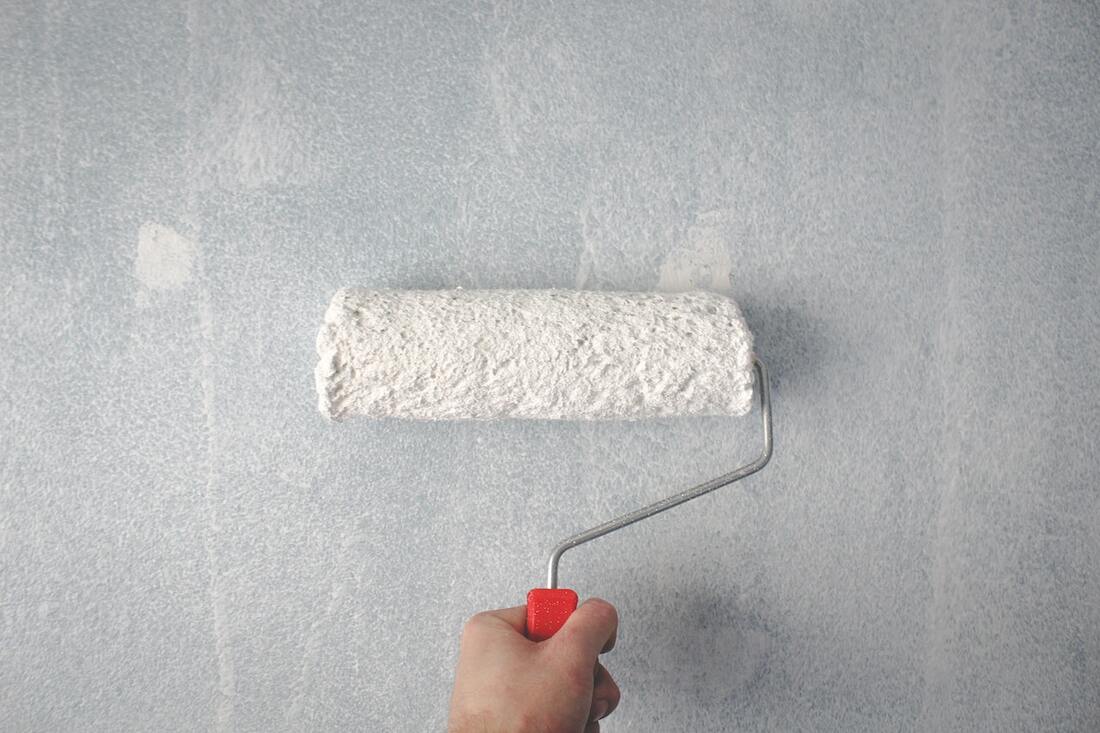







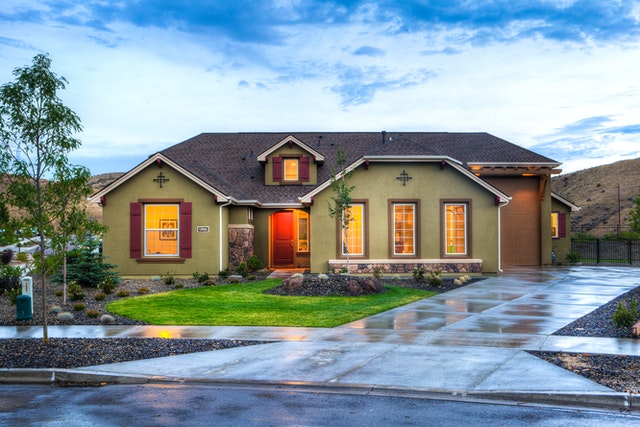
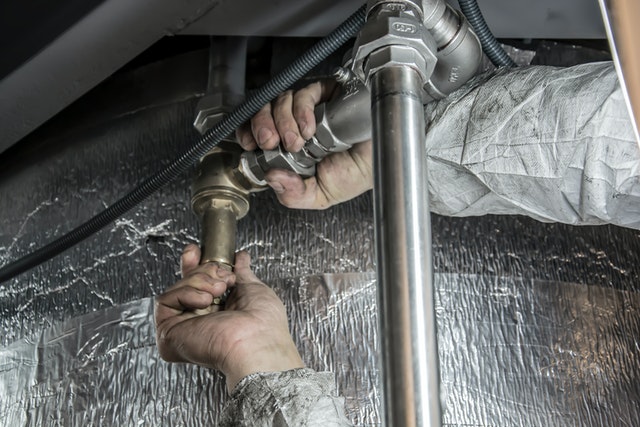

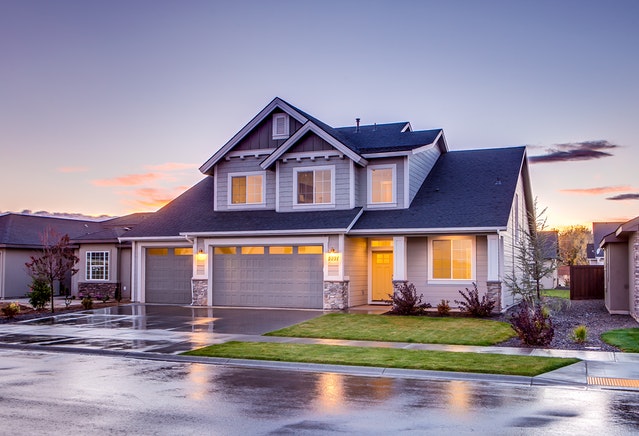



 RSS Feed
RSS Feed

